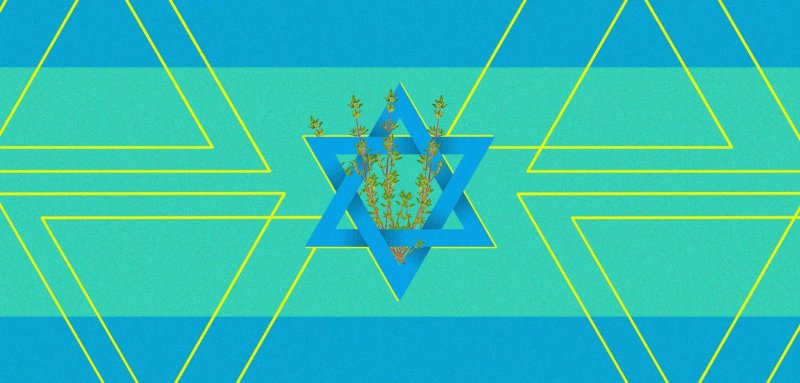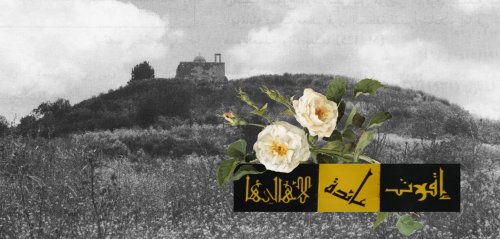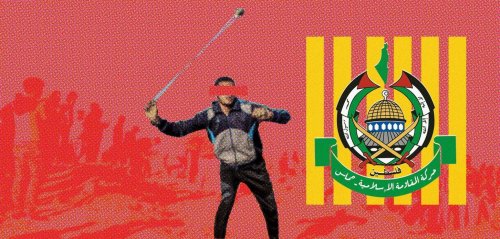Many years ago when I was still a student at the University of Haifa, an Arabic television channel organised a debate bringing together Palestinian and Israeli students to discuss political issues. The episode was filmed in the abandoned Wadi Salib of Haifa, a neighbourhood which still yearns every day for its authentic, missing landmarks.
One of my Palestinian friends participated in the episode. In the midst of the political debate, the conversation started moving from the pivotal questions of the day onto the most important component of Palestinian identity: food. At this point the discussion started to get heated – for with every Israel’s attempt to erase the building blocks of Arab and Palestinian identity – both its geographical sites and its people – runs a parallel attempt to steal this most distinguishing feature of Palestinian identity. Subsequently, falafel, hummus, tabouleh and other elements of Palestinian and Levant cuisine are marketed as “Israeli food” around the world.
But this argument is ultimately a protracted and continuous one, and so let’s return to my friend’s TV debate: as the political dispute between the two sides reached its zenith, my friend Sayed stood up and directed the following words at one of his Israeli counterparts: “Tell me, does your grandmother know how to make falafel?”
As the political dispute between the two sides reached its zenith, my friend Sayed stood up and directed the following words at one of his Israeli counterparts: “Tell me, does your grandmother know how to make falafel?”
Silence prevailed. And to this very day, we haven’t stopped laughing about the episode. For the question my friend posed was the crux of the daily ‘dispute’ surrounding the identity of falafel, or the spices you should sprinkle atop your hummus. We eat the falafel at our grandmothers’ – because they know how to make the best falafel in the world.
This question strikes at the heart of the divide between those who belong to the falafel or ta’miya (the Egyptian version) kitchen, and those who arrived there as its colonisers. And so of course, as a matter of principle, the Jews of Aleppo and Alexandria own falafel and ta’miya just as much as my grandmother – whether colonialism likes it or not.
I went back to this story after reading an English article titled “What is Za’atar? The Israeli spice that you will want to sprinkle on everything.” The article talks of how prevalent the “unbelievable” za’atar is in Israel, where you can find it (on bread, fish, salad), what spice mixes you can find (sometimes with sesame and sometimes with sumac), and so on and so forth. You could read the article if you want to continue feeling sick.
But in any case, speaking of Israel’s shameless audacity is old news: a weary, age-old subject. Indeed, the very concept of the “culture battle,” at its roots, means that Israel knows full well that culture is the main banner which people rally around. It is the collective identity which makes people feel at home and gives them a sense of belonging – be it to a place, people or thing. Language, like food, are both safe spaces.
Israel was unable to erase the Arabic language from the lives of the Palestinians of Israel. That is, the Palestinians of Israel know Hebrew as a second language; regardless of their relationship with the language, it is one they need to survive and subsist – and one they are proficient in, sometimes using Hebrew words when speaking Arabic. But despite all this, their knowledge of Hebrew did not cancel their usage of Arabic in their daily conversations, in their self-expressions, in their songs at weddings, in their curse-words.
Perhaps the most important thing is the curse-words – that is to say, even the Israelis themselves swear in Arabic – so how can you express the highest feeling of anger in any other language, considering what it offers in linguistic riches and a seemingly-endless assortment of words to choose from?
When Israel failed to erase the Arabic language despite all of its continuous attempts – which most lately included the ‘Nation-State Law’, designating Hebrew as the only language of the State of Israel and removing Arabic from its former official status – it proceeded to wage the ‘war on food’.
When Israel failed to erase the Arabic language despite all of its continuous attempts – which most lately included the ‘Nation-State Law’, designating Hebrew as the only language of the State of Israel and removing Arabic from its former official status – it proceeded to wage the ‘war on food’.
This is one of the arenas it has most heavily invested in and one in which it has reaped global successes, due to the obvious importance of food in daily life as well as the modern emergence of food tourism – which has come to occupy its own vital terrain in global tourism. Food is reason enough for one’s home to be colonized.
And so, za’atar is a red line. That is to say, we never relented on combating the theft of falafel, hummus and tabouleh – but with time we started to mock the issue. Ha ha, “does your grandmother know how to make Falafel?” – and everyone laughs. But za’atar?! This plant which naturally grows in fields and lands, between the stones of abandoned villages?
Did you know that if we are caught picking zaatar by an employee of the Keren Kayemet LeYisrael (KKL – the Jewish National Fund) we will be fined by law?
The KKL is one of the first Zionist institutions – working from its establishment in 1901 until the Nakba (catastrophe) of 1948 on buying Palestinian land, and laying the groundwork for the expansion of continuous colonisation. In an article published in the magazine ‘Fus’ha –Palestinian Culture’ titled “Why does Israel fear Za’atar and Gundelia?” Rabea Eghbariah says: “In the context of using food and nature as tools to control the Palestinian human being, the imposed legal prohibition on picking za’atar and gundelia is an additional axis in which the coloniser attempts to dismantle the relationship between the Palestinian and his land and identity from one side, while giving authority over the land and its resources to the Israeli on another.”
Eghbariah notes in his research that picking wild za’atar was banned in 1977 by a decree signed by then-Israeli Minister of Agriculture, Ariel Sharon. The decree modified the list of “protected plants” to include za’atar. The pretext offered, in Eghbariah’s words, was that “picking it causes environmental damage… thereby imposing punishments and large fines on anyone who picked or possessed any quantity whatsoever of za’atar. Until that point, the wilderness was the only source of za’atar in Palestine, as its cultivation wasn’t common at the time.”
Za’atar is a red line.
Consequently, za’atar became inextricably tied to the story of the survival of Palestinians in Israel – as with the case of olives before it. This symbolism is enshrined in the presence of za’atar in the details of Palestinian life, where it has – along with olive oil – transformed with time to become the most important of gifts.
For the likes of me and others who were born in Palestine – those of us who can reach the Galilee, Jerusalem and other cities and villages – we often work as post messengers (or rather, za’atar-messengers) carrying bags of za’atar in any of our travels from Palestine to some other Arab or European land, hoping to bring enjoyment to our friends who had been forbidden the za’atar of Palestine, or who live outside its borders and miss its taste.
Perhaps it is the case that, compared to the likes of peppers or hummus, za’atar has a totally different symbolism as a consequence of its theft and appropriation by the colonial entity. For it truly holds a symbolism directly tied to the land and its nature: to walk in the wilderness and smell the scent of the plant which could be eaten raw – before being ground with sesame, sumac and oil, and finally spread with bread or dough like in the Levantine manakish.
“Tell me… does your grandmother know how to pick za’atar?”
Preparing peppers is possible anywhere in the world, but za’atar has its own specific habitat in which it can grow and survive. The labelling of za’atar as ‘Israeli spice’, in the end, leads us to ask the question: “Tell me… does your grandmother know how to pick za’atar?”
Raseef22 is a not for profit entity. Our focus is on quality journalism. Every contribution to the NasRaseef membership goes directly towards journalism production. We stand independent, not accepting corporate sponsorships, sponsored content or political funding.
Support our mission to keep Raseef22 available to all readers by clicking here!
Interested in writing with us? Check our pitch process here!






